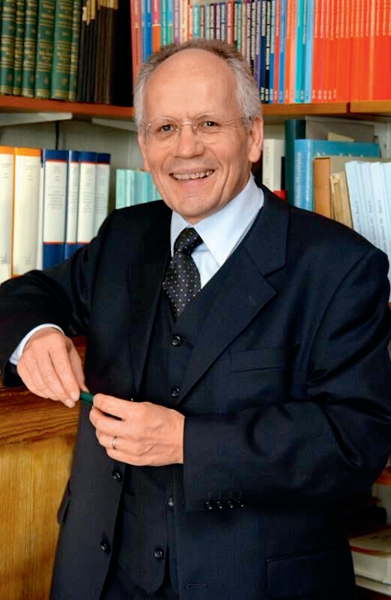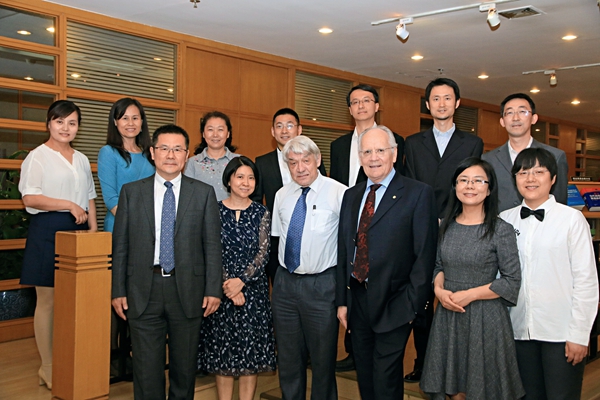Looking into the Chinese 'Mirror'
- By Sabine Weber
 0 Comment(s)
0 Comment(s) Print
Print E-mail China Today, September 21, 2017
E-mail China Today, September 21, 2017
– An interview with Professor Alfons Labisch, a renowned German scientist
Interdisciplinary work is a fundamental skill in the current international scientific and academic discourse. However, profound intercultural cooperation is only possible under the maxim of exchange on an equal footing: The experience must be mutually beneficial for all parties involved.
Furthermore, linguistic capability for dialogue and a basic knowledge about the cultural background of the counterpart appears to be only one of the core aspects to successfully achieve this communicative goal. The openness to be culturally tolerant must also complement the cognitive ability, as well as empathy to understand alternative world views within their own context.
Only in this way can the bridge be built to another's cultural space and understanding of their distinct cultural identity. This facilitates the exchange of cultural understanding and the sharing of disciplinary expertise between individuals hailing from vastly different backgrounds and approaches to the specialized disciplines.
That is the reason why scientists from disciplines other than philology or linguistics are actually often the ones who end up contributing in extraordinary ways to intercultural research on a global scale.
One scientist who perfectly fits this description is the German scholar Alfons Labisch.
Labisch studied philosophy, social science, history, and Latin at the RWTH Aachen and the University of Koeln in Germany. He continued his studies in the field of natural science, becoming a licensed physician and, in 1982 in the city of Aachen, successfully completed his doctorate in both philosophy and medical science.
This unusual and fascinating academic accomplishment, combined with his publications in the field of sociology and the history of medical science, garnered much positive attention from his contemporaries and the scientific fraternity at large, leading to his appointment in 1979 to the University of Kassel as a professor of Health Policies and Medical Sociology.
|
Labisch with members of the Institute for Global History at Beijing Foreign Studies University. |
During his research, dealing with the main question of what was the significance and effects of health and healthcare on society, the aspect of intercultural exchange, particularly with East Asia, became more apparent and relevant for Labisch.
This growing fascination – at first personal, later professional, and finally institutional – led Labisch, already a holder of two PhDs and numerous other academic accolades, to add the honor of a second professor title to his formidable portfolio.
To thank and honor the German scholar for his longstanding contributions in the field of intercultural cooperation and academic exchange, Peng Long, principal of the renowned Beijing Foreign Studies University (BFSU), awarded Labisch with the title of a honorary professor. The Chinese version of honorary professorship is the highest academic honor a Chinese university can bestow upon a foreign scholar.
China Today conducted an exclusive interview with Professor Labisch and spoke with him at length about the interesting circumstances that led the German historian, sociologist, and medical expert with a classical European academic background to be a professor at a Chinese university.








Go to Forum >>0 Comment(s)